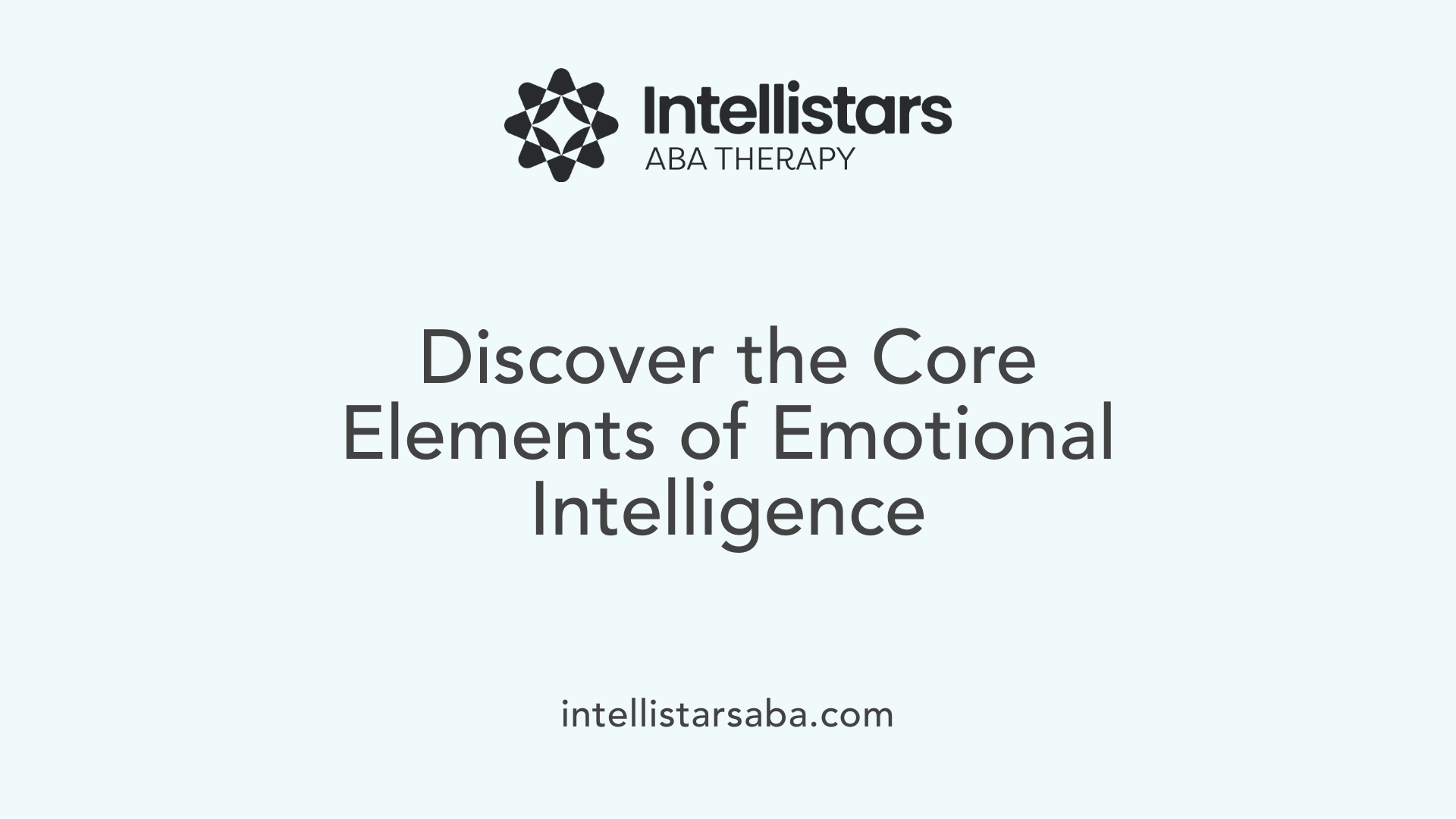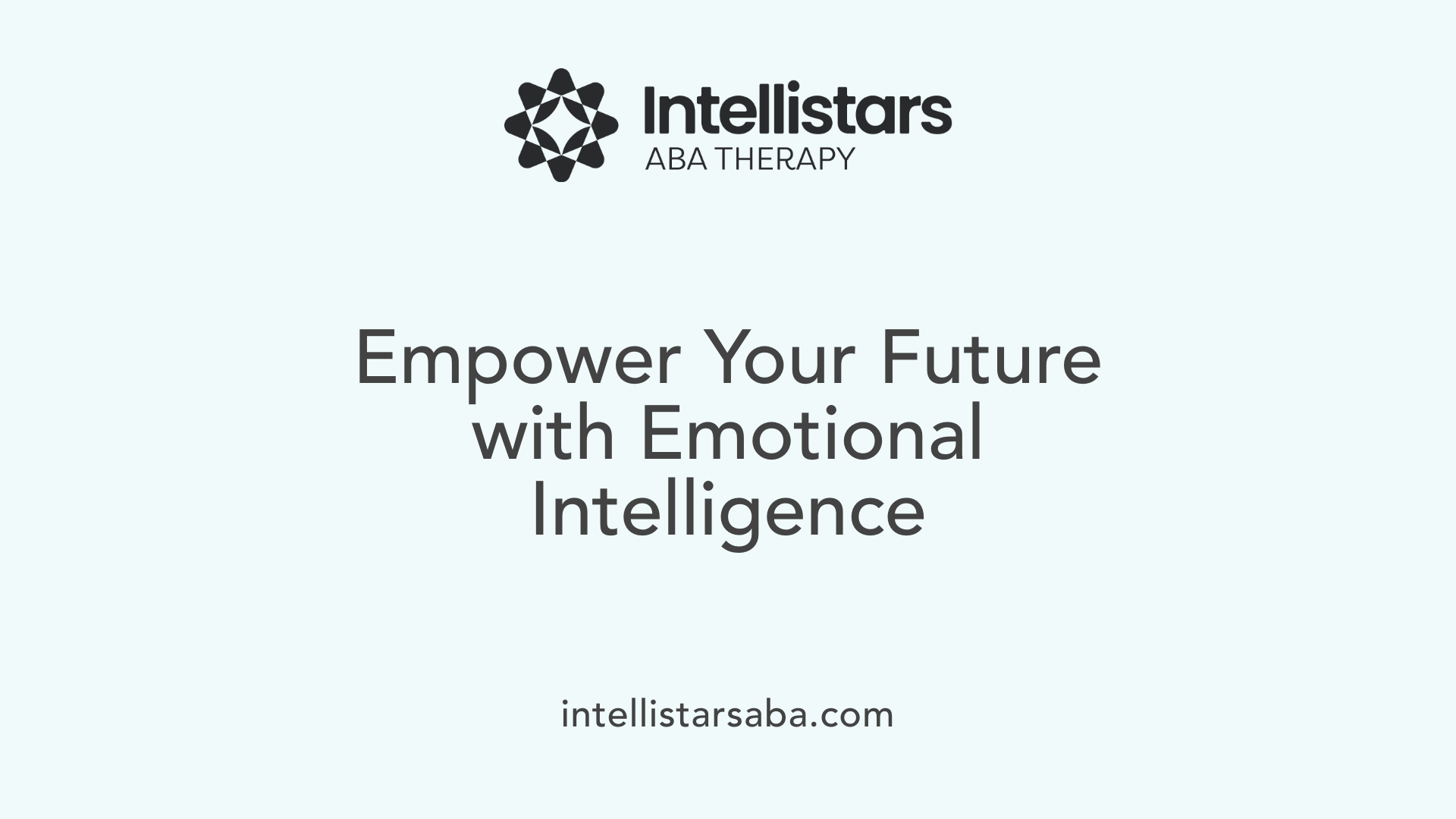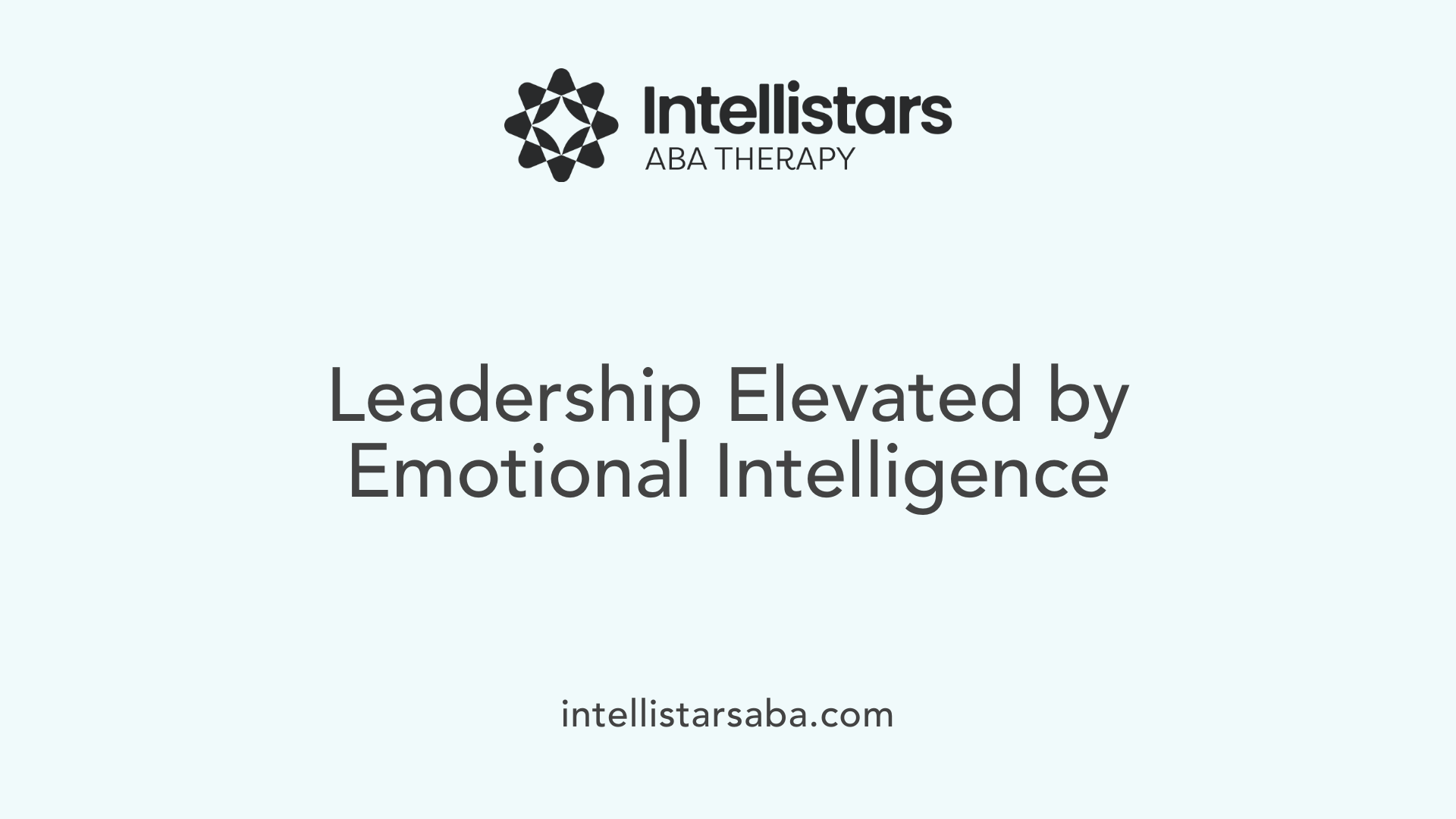Understanding Emotional Intelligence and Its Impact
Emotional intelligence (EI) is increasingly recognized as a critical factor in achieving and maintaining long-term success across personal, professional, and organizational domains. Defined as the ability to recognize, understand, and manage one’s own emotions while perceiving and influencing the emotions of others, EI encompasses crucial skills that foster resilience, effective communication, and leadership excellence. This article explores the essential components of EI, its significance in various success dimensions, and practical methods to develop and leverage this powerful set of abilities for sustained achievement.
The Foundations and Components of Emotional Intelligence

What is emotional intelligence and what are its components?
Emotional intelligence (EI) is the ability to recognize, understand, and manage our own emotions while also perceiving and influencing the emotions of others. It’s made up of five key elements: self-awareness, self-regulation, motivation, empathy, and social skills. These parts work together to enhance our personal well-being, improve how we interact socially, and increase effectiveness in professional settings.
Self-awareness is the foundation of EI. It involves understanding your own emotions, recognizing your strengths and weaknesses, and noticing how your feelings impact your actions and performance. Only about 10-15% of people are truly self-aware, but developing this skill can greatly improve emotional regulation and interpersonal interactions.
Self-regulation is the ability to control your impulses and reactions. It enables individuals to stay calm under pressure, manage stress effectively, and respond appropriately to different situations. This component helps maintain emotional balance, reducing burnout and fostering resilience.
Empathy is about understanding and sharing the feelings of others. It involves active listening, recognizing emotional cues, and practicing compassion. Empathy strengthens relationships, facilitates teamwork, and helps resolve conflicts peacefully.
Social skills are essential for communication and building relationships. They include effective listening, clear expression of ideas, and the ability to influence and motivate others. Strong social skills lead to better collaboration, leadership, and conflict management.
Motivation guides our actions driven by internal goals rather than external rewards. It fosters optimism, perseverance, and a desire for self-improvement, which is crucial in overcoming setbacks and maintaining a positive attitude.
These elements do not operate in isolation but work synergistically. For example, high self-awareness enhances self-regulation and empathy, which in turn improve social skills. Together, these capabilities enable individuals to navigate complex social environments, build trust, and lead with emotional insight.
Understanding and developing these components can transform how we relate to others, handle stress, and achieve personal and professional growth. Cultivating EI is an ongoing process involving reflection, feedback, and practice, making it a vital competency for success in today’s interconnected world.
The Role of Emotional Intelligence in Achieving Long-Term Success

What is the relationship between emotional intelligence and success in personal and professional life?
Emotional intelligence (EI) plays a crucial role in shaping success across both personal and professional spheres. High EI improves self-awareness, allowing individuals to recognize their strengths, weaknesses, and emotions, which helps in making better decisions and managing stress effectively. Empathy and social skills enhance interpersonal relationships, enabling better communication and conflict resolution.
In personal life, EI contributes to resilience, emotional well-being, and fulfilling relationships. It helps individuals navigate life's challenges with a balanced outlook and maintain positive mental health. Professionally, EI is associated with strong leadership, teamwork, and influence. Leaders with high EI can inspire their teams, foster trust, and drive organizational performance.
Skills such as active listening, self-reflection, and feedback-seeking are vital for developing EI, which significantly boosts personal growth and career progression. Overall, emotional intelligence acts as a predictor of success by equipping individuals to handle complex social interactions, bounce back from setbacks, and achieve their goals.
How does emotional intelligence impact organizational effectiveness and long-term success?
Organizations benefit greatly from fostering high emotional intelligence within their teams and leadership. Leaders with strong EI enhance communication channels, resolve conflicts efficiently, and promote a collaborative work environment. Such leaders inspire trust and motivate employees, which elevates overall organizational morale.
Moreover, EI contributes to better decision-making by helping leaders understand the emotional undercurrents influencing their teams and stakeholders. This understanding fosters a positive organizational culture and reduces turnover, as employees feel valued and understood.
In the long term, emotional intelligence is vital for organizational adaptability and resilience. Companies that prioritize EI can more effectively manage change, nurture innovation, and sustain a motivated workforce aligned with strategic objectives. These benefits translate into higher productivity, innovation, and competitive advantage, supporting sustained success over time.
How does high EI sustain success and resilience over time?
High emotional intelligence sustains success by enabling individuals and organizations to adapt to evolving environments. EI fosters resilience through self-awareness and self-regulation, allowing people to manage setbacks without losing momentum.
For leaders, high EI means they can inspire confidence, provide support during crises, and maintain a positive outlook despite challenges. This creates a culture of trust and collaboration, essential for long-term growth.
Furthermore, EI helps organizations sustain a motivated workforce by promoting emotional well-being and a supportive climate. Employees who feel understood and valued are more engaged, innovative, and loyal.
Research highlights that EI can be developed over time through intentional practices like reflection, active listening, and feedback. As neuroplasticity allows the brain to adapt, improving EI continually strengthens resilience, decision-making, and leadership capacity. Ultimately, emotional intelligence is a resilient trait that underpins sustained achievement and enduring success.
Strategies for Developing and Improving Emotional Intelligence
 To effectively enhance emotional intelligence, individuals can adopt several targeted strategies that foster self-awareness, social understanding, and relationship management.
To effectively enhance emotional intelligence, individuals can adopt several targeted strategies that foster self-awareness, social understanding, and relationship management.
A fundamental practice is cultivating self-awareness. This involves regularly reflecting on your own emotions, thoughts, and behaviors. By recognizing how emotions influence actions, you lay the groundwork for better self-regulation. Techniques such as journaling or mindfulness meditation can deepen this understanding, making it easier to handle stressful situations calmly.
Developing self-management skills is equally important. Managing impulses and stress through methods like deep breathing, meditation, and establishing consistent routines can lead to greater emotional control. Such practices help maintain a positive outlook, even in challenging circumstances.
Enhancing social awareness requires active listening and observing social cues. Showing genuine empathy and paying attention to others' emotions improve communication and foster trust. Practice empathetic responses and seek to understand different perspectives to strengthen social bonds.
Building relationship management skills involves effective communication, conflict resolution, and giving or receiving feedback constructively. Engaging in open conversations and creating authentic connections with colleagues and friends contribute to healthier relationships.
Additional avenues for growth include seeking external feedback—such as 360-degree reviews—and reading books or articles focused on emotional intelligence. Consistent, deliberate practice of these skills in everyday interactions ensures continuous development.
By integrating these strategies into daily routines, individuals can increase their emotional intelligence, leading to better personal and professional relationships, and a more resilient, empathetic approach to life's challenges.
The Influence of Emotional Intelligence on Leadership and Team Dynamics

How does emotional intelligence influence leadership effectiveness and team management?
Emotional intelligence plays a vital role in shaping effective leaders and cohesive teams. Leaders with high EI are skilled at understanding and managing their own emotions, which allows them to stay calm and clear-headed in stressful situations. They also excel at perceiving and responding to the emotions of others, fostering trust and respect within their teams.
This emotional awareness and regulation enable leaders to motivate their teams more effectively, resolve conflicts smoothly, and create a positive organizational climate. The four core components—self-awareness, self-management, social awareness, and relationship management—are essential tools that help leaders guide teams through challenges, make thoughtful decisions, and cultivate a culture of open communication and collaboration.
Research highlights that emotionally intelligent leaders boost employee engagement, improve overall performance, and foster a workplace environment where trust and psychological safety thrive. By developing their EI skills, leaders can enhance decision-making, demonstrate resilience, and maintain adaptability in the face of organizational change or crises.
Overall, high emotional intelligence in leadership leads to stronger team cohesion, better organizational outcomes, and sustainable growth, especially in today’s fast-paced and complex business environment.
Emotional Intelligence, Stress Management, and Well-Being
How does emotional intelligence impact leadership development and organizational effectiveness?
Emotional intelligence (EI) plays a vital role in shaping effective leaders and fostering strong organizations. Leaders with high EI can better manage their own emotions and understand those of team members, creating a foundation for trust and collaboration. This skill set helps in resolving conflicts, building resilient teams, and maintaining a positive workplace atmosphere.
Research highlights that high EI correlates with improved team performance and higher employee engagement. Leaders with this capability are more adaptable to changing conditions, such as the uncertainties during crises like COVID-19 or geopolitical conflicts. Their empathy and emotional regulation facilitate clearer communication and support employee well-being.
The core elements—self-awareness, self-management, social awareness, and relationship management—allow leaders to inspire, motivate, and guide their teams effectively. Developing these skills enhances organizational resilience, drives innovation, and contributes to long-term growth and success.
What role does emotional intelligence play in health and stress management?
Higher emotional intelligence links directly to lower stress levels and better physical health. Those with EI can recognize early signs of emotional distress, enabling them to employ strategies like mindfulness, breathing exercises, and physical activity.
Managing emotions effectively reduces the risk of stress-related illnesses such as anxiety and cardiovascular disease. In emotionally demanding roles, EI fosters resilience and mental clarity, helping individuals recover quickly from setbacks or health challenges.
Investing in developing emotional intelligence supports not only organizational performance but also enhances personal well-being. This proactive approach to stress management and health preservation encourages a healthier, more resilient workforce and personal life.
| Aspect | Impact | Additional Details |
|---|---|---|
| Stress Reduction | Lower stress levels | Through emotional regulation, mindfulness, and adaptive behaviors |
| Health Improvement | Better immune function and reduced disease risk | EI helps in early detection of emotional distress, leading to timely interventions |
| Recovery from Illness | Faster recovery and reduced recurrence | High EI enables better handling of health setbacks and promotes mental resilience |
| Long-term Well-Being | Enhanced overall health | Continuous development of EI supports both physical and mental health over time |
Building a Culture that Values Emotional Intelligence
Organizational strategies to cultivate EI
To foster emotional intelligence within workplaces, organizations can implement several practical strategies. These include providing training programs that focus on self-awareness, empathy, and social skills. Workshops can include role-playing exercises, active listening practices, and feedback sessions. Encouraging self-reflection through journaling and offering 360-degree feedback helps employees identify areas for growth. Leadership development programs that emphasize emotional intelligence skills are also crucial, as managers set the tone for organizational culture.
Another effective approach is integrating emotional intelligence assessments during recruitment and promotion processes. Tools like behavioral interview questions and role-playing scenarios enable employers to gauge candidates' EI levels. Additionally, creating a supportive environment where open communication and emotional expression are welcomed helps develop a psychologically safe space.
The benefits of a human-centric workplace culture
A workplace that prioritizes emotional intelligence becomes more collaborative, resilient, and innovative. High EI leads to stronger relationships among team members, better conflict resolution, and increased employee engagement. Employees feel valued and understood, reducing stress and turnover. Such cultures foster trust, open dialogue, and a shared commitment to collective success.
Ultimately, organizations that embed EI into their core values build a positive environment where employees thrive personally and professionally. This human-centric approach not only enhances individual well-being but also drives overall business performance, stability, and growth.
Embracing Emotional Intelligence for a Brighter Future
Incorporating emotional intelligence into personal development, leadership practices, and organizational culture is essential for achieving long-term success. As research continues to underscore the predictive power of EI for performance, resilience, and well-being, both individuals and organizations must prioritize developing these skills. By fostering a culture that values empathy, emotional awareness, and relationship management, we can build workplaces and careers that thrive on trust, innovation, and sustainability. Ultimately, nurturing emotional intelligence today paves the way for sustained achievement and a more resilient, compassionate world.
References
- Emotional Intelligence in Leadership: Why It's Important - HBS Online
- The Importance of Emotional Intelligence in Achieving Success as a ...
- The Importance of Emotional Intelligence for Effective Management
- The vital connection between emotional intelligence and well-being
- 12 benefits of emotional intelligence in the workplace - Lumenalta
- Emotional intelligence alone doesn't ensure success | by Colin Ellis
- The Importance of Emotional Intelligence for Effective 21st Century ...
- The Role of Emotional Intelligence in Effective Succession Planning






